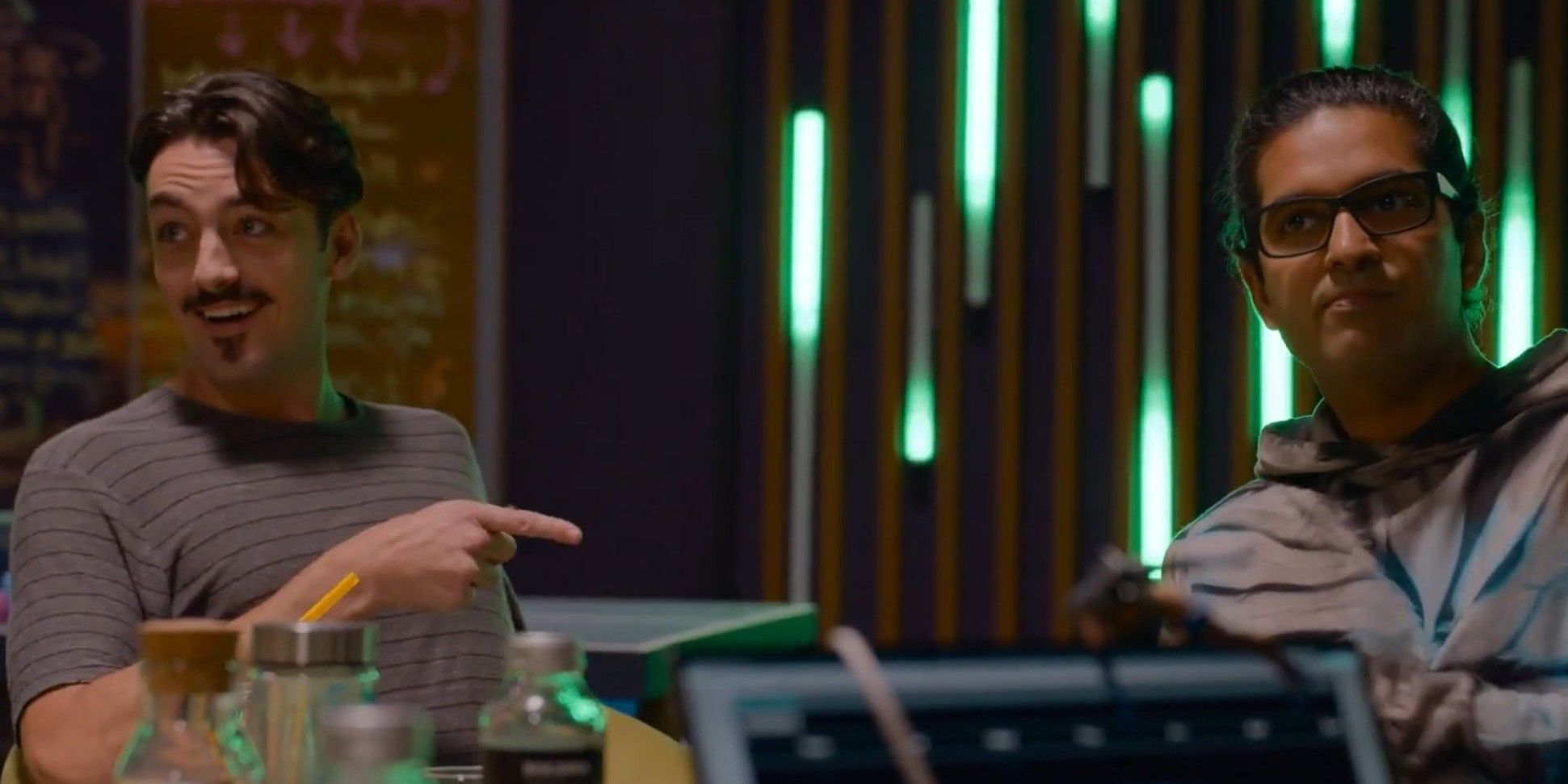2021’s belated revival, The Matrix: Resurrections makes fun of people who assume to know what the Matrix is about. The real meaning of the Matrix movies has always been a subject of hot debate, but the metaplot of The Matrix: Resurrections actually makes this question a part of its own meta plot, mocking everyone who thinks they have the answers.
The Matrix: Resurrections opens to a series of events that closely mirror the original Matrix movie before revealing Neo, alive and well in the Matrix as Thomas Anderson, the designer of a trilogy of videogames called “The Matrix,” which are literally the original Matrix trilogy. After he’s informed that his contract with Warner Bros. will be terminated if he doesn’t make a Matrix sequel, the movie has a montage scene where “Thomas Anderson” attends a development meeting full of people citing focus groups and personal interpretations of what The Matrix is.
As the creator of The Matrix videogame trilogy, you’d expect Neo to have some input on what it’s all about and how it should continue, but instead, he sits quietly as we see repeat shots of characters repeating the same mantras over and over in different clothes and different settings to show how each person is fixed in their vision of what The Matrix should be. Throughout the montage, Neo is shown running on a treadmill, eating rare steak (in a callback to Cypher’s “ignorance is bliss” from the original movie), and taking blue pills, all signs that he’s accepting a reality being fed to him. The conversations turn from people telling him what The Matrix is about to telling him what the sequel needs to be in order to be successful. If Neo is an artist, and The Matrix is his art, then what is happening on screen is the antithesis of art. Neo’s voice and perspective as the storyteller are entirely removed from the equation as he’s being told how to make a sequel he doesn’t even want to make.

To understand just how meta this joke is, it’s important to look at the real world reception to The Matrix, in which The Wachowskis themselves have never really elaborated on what The Matrix means. The siblings are notoriously private and don’t usually discuss their own art, although it seems pretty clear in The Matrix Resurrections that Neo has a lot of parallels to Lana Wachowski He even tells Trinity at the coffee shop “There is a lot of me in him. Maybe a little too much.” Considering Warner Bros. had plans to make The Matrix 4 whether the Wachowskis were on-board or not, just like the quote in the movie, it’s hard to not also see the brainstorm sessions in the movie as references to things told to them by Warner Bros. “suits” or fans of the franchise, so the positioning of Neo in this scene where he’s told what his art means, why it was successful, and, more specifically, what his next artistic creation needs to be in order to be successful, is beyond dripping with irony, particularly when Bugs later tells Neo “they took your story, something that meant so much to people like me, and made it trivial.”
This doesn’t mean any of the interpretations presented are inherently wrong or that nobody actually understands what The Matrix franchise is, but it does serve as a fascinating commentary on the environment where the artist is being told what their art means and how that should influence their next art. Regardless of the true meaning of The Matrix, one thing explicitly stated by Morpheus “What is the Matrix? Control. The Matrix is a computer-generated dream world built to keep us under control in order to turn a human being into this,” presenting a coppertop battery. As a metaphor for how art is commercialized, The Matrix: Resurrections has a lot of interesting meta-angles, but as a metaphor for Lana Wachowski reclaiming ownership of The Matrix IP from people who want to dictate its significance to her, it’s especially fascinating.




